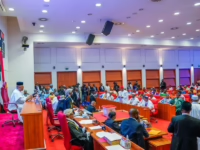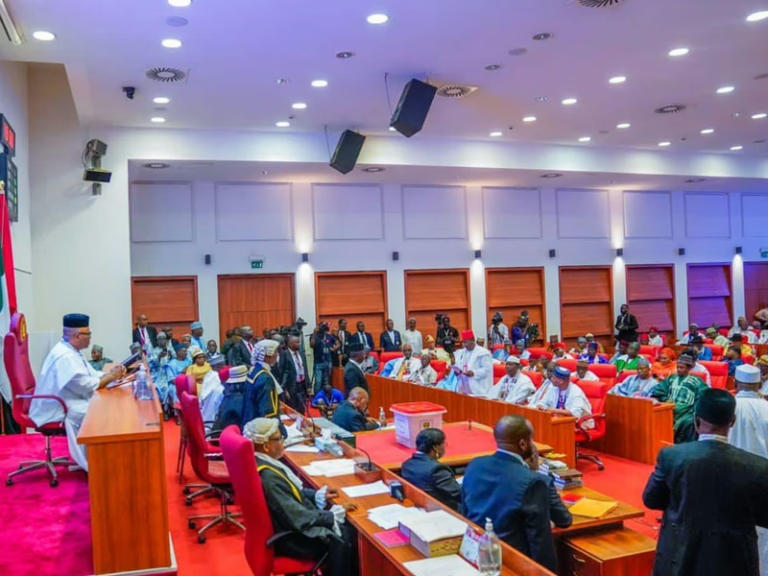The Senate has successfully moved a bill to its second reading that proposes the unification of the Nigeria Social Insurance Trust Fund (NSITF) Act and the Employees’ Compensation Act into a single, streamlined statute.
Introduced by Senator Oluwole Fasuyi of Ekiti North, the legislation seeks to repeal the current NSITF and Employees’ Compensation Acts, merging them into one cohesive legal framework under the newly proposed Nigeria Social Security Trust Fund (NSSTF).
Senator Fasuyi emphasized that this reform is intended to synchronize social insurance and workers’ compensation regulations, thereby removing redundancies, boosting operational efficiency, and creating a centralized body to oversee social security administration nationwide.
The bill aims to extend robust protection to employees across both formal and informal sectors, covering risks such as occupational injuries, disabilities, unemployment, retirement, and other threats to their economic well-being.
“Our goal is to integrate the provisions of the existing Nigeria Social Security Trust Fund Act and the Employees’ Compensation Act into a singular, comprehensive statute,” Fasuyi explained. “This will establish the Nigeria Social Security Trust Fund as the central authority responsible for managing social security resources in Nigeria.”
He further highlighted that the bill is designed to broaden social protection coverage, ensure sustainable funding through combined contributions from employers, employees, and government, and enhance transparency and accountability by refining the governance framework.
The proposed legislation also aligns with global labor standards and best practices as advocated by the International Labour Organisation (ILO), ensuring Nigeria’s social security system meets international benchmarks.
Senator Adams Oshiomhole, representing Edo North and former president of the Nigeria Labour Congress (NLC), endorsed the bill, calling it a “necessary and pragmatic reform.”
“This initiative supports the president’s agenda to streamline government agencies and reduce administrative expenses,” Oshiomhole remarked. “It promises improved efficiency and more effective governance. I fully back this legislation and the points raised in its favor.”
Senator Simon Lalong of Plateau South, who previously served as Minister of Labour and Employment, also expressed strong support, noting the bill’s overdue nature. “Having overseen labor matters, I can attest that this bill addresses critical gaps in workers’ compensation and requires little further debate,” he stated.
Senator Diket Plang, chairman of the Senate Committee on Labour and representing Plateau Central, pointed out that the bill would empower the NSITF with stronger enforcement capabilities to hold violators accountable. “The former legislation lacked clear penalties for defaulters, hampering the NSITF’s ability to act decisively. This reform will ensure workers receive due compensation and protection following workplace incidents,” Plang explained.
Victor Umeh, senator for Anambra Central, praised the consolidation effort, emphasizing its potential to simplify Nigeria’s labor laws. “Maintaining two separate laws is unnecessary. This bill merges them into a single act that governs workers’ compensation across both public and private sectors,” he said.
Senate President Godswill Akpabio lauded Senator Fasuyi for his initiative before putting the bill to a voice vote. The legislation was then assigned to the Senate Committee on Labour and Employment for detailed examination, with instructions to present their findings within four weeks.























0 Comments